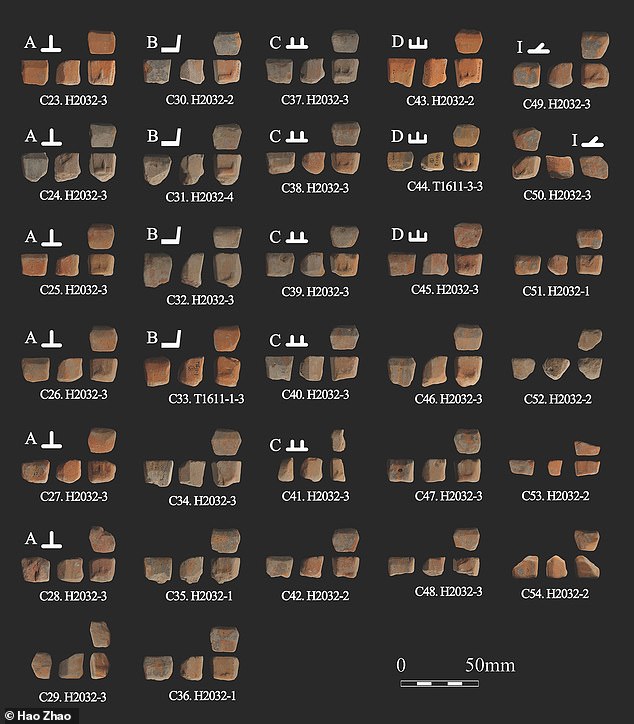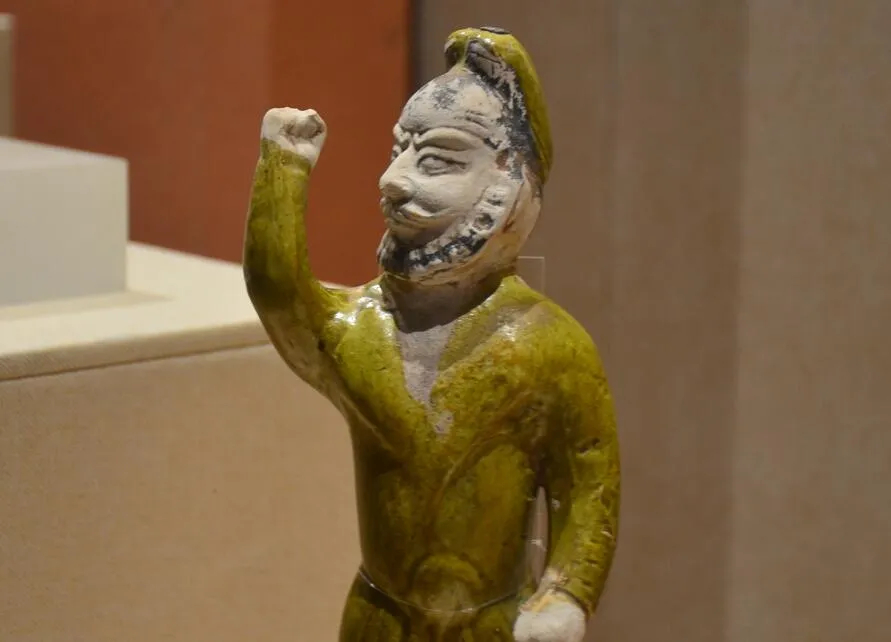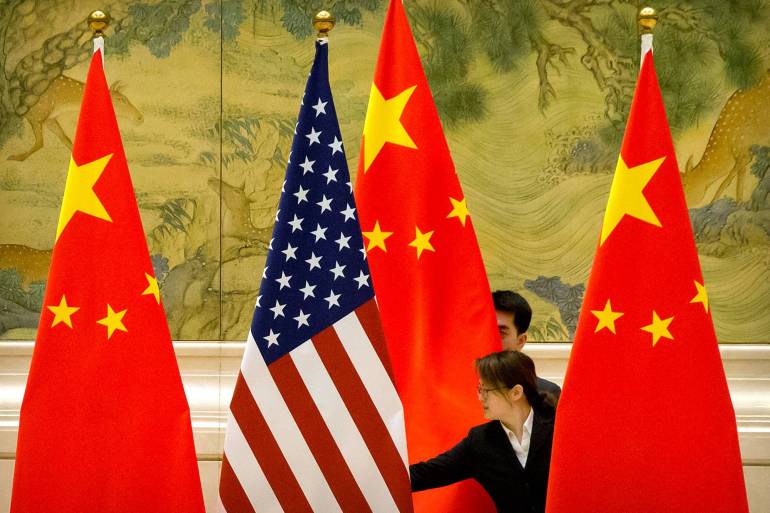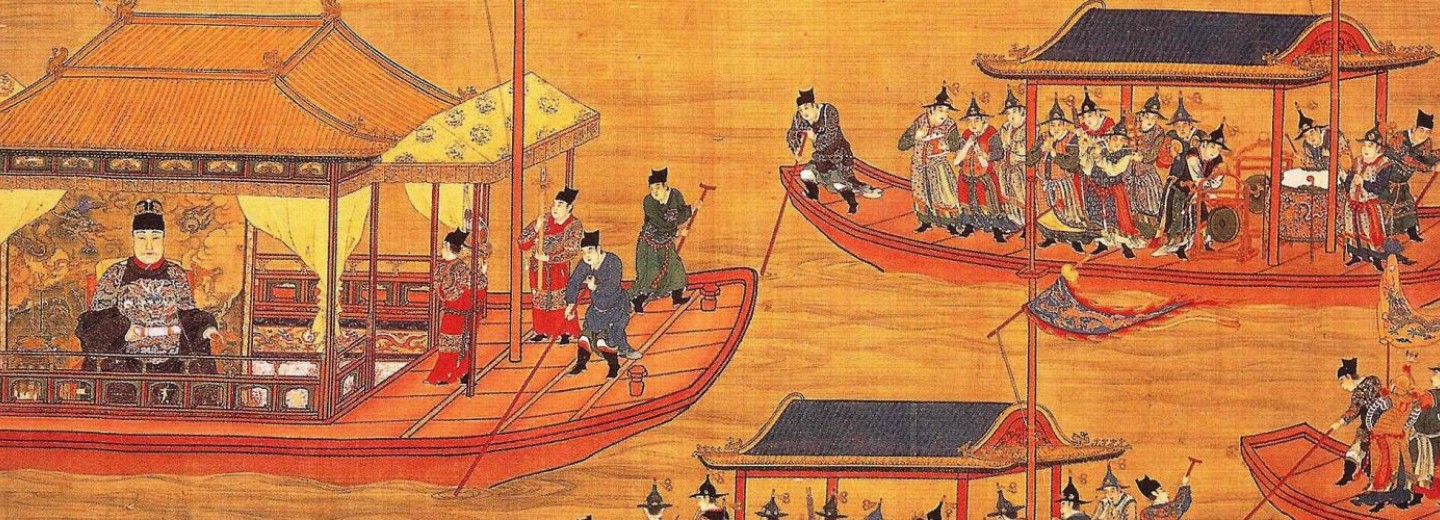China news 16th August 2021
Our first story this week tells of another remarkable study from Chinese archaeologists, the discovery of the world’s oldest mint for coins. The second is about Chinese law and the punishment of foreigners in the early and powerful dynasties. There were carefully drawn up laws as far back as the 5th century to cope with the large numbers of foreigners living and studying in China at that time. Finally, we have a remarkably critical look at recent changes to many legal aspects of China today – viewed from a Hong Kong perspective. Hong Kong is not directly affected but, as always, it must brace itself for some fallout the writer believes.
The world’s oldest mint has been discovered in Henan
The archaeological team of Zhengzhou University recently published a paper in the international archaeological journal Antiquity, confirming that the Guanzhuang site in Yiyang, Henan Province is the oldest mint in the world.
The team identified four types of relics related to lost wax casting, including lost wax finished products, unused cores, used cores and external models. Among them, the remnants of the standard metal currency produced by Guanzhuang Copper Casting Workshop are the core model of lost wax. A total of 54 core elements have been found, which are the same as the core elements embedded in the two lost wax products unearthed at the site. It is known that these coins were produced at the Guanzhuang site.

Zhao Hao, an associate professor in the Department of Archaeology of Zhengzhou University, said that coin production at the Guanzhuang workshop occurred between 640 and 550 BC. While the workshop continued to produce bronze weapons and other products, it also began to make metal currency. This data provides the exact date of the early Chinese coin site for the first time. It also makes the Guanzhuang site the oldest coinage site in the world confirmed by carbon dating.
Source: qq.com.
How to punish foreigners who violated the law in ancient China?
Is it true that in ancient China, as in the the late Qing Dynasty (19th century), that China would be helpless to punish foreigners for illegal acts?
It was not so. In the Tang Dynasty (CE 618-705), which was the peak of foreigners living in ancient China, and the Song Dynasty (960-1209) with brilliant governance, and even the Ming Dynasty (1368-1644) China had a relatively good legal system to punish foreigners who broke the law. Of course, this legal system to punish foreigners for crimes experienced gradual development and improvement process.
First, as the earliest and most complete written code in China, Tang Lvshu is the earliest code documenting the law punishing foreigners’ crimes in the ancient code documents that has been discovered so far.

The Tang Dynasty was a new country born in the war of the Sui Dynasty. In 618 A.D., Li Yuan proclaimed himself emperor in Chang’an and established the Tang Empire. In the summer of 626, Li Shimin launched a coup and became emperor, opening a 23-year rule.
However, as more foreigners came to China to learn to do business, how to manage these foreigners became one of the most troublesome problems in the Tang Dynasty. To strengthen the legal management of foreigners, the “Tang LyShu” clearly records the legal punishments for foreigners’ crimes.
What does this law mean? Simply put, if a person from the same country infringes on his own people in the Tang Empire, he will be tried according to the law of that country. For example, if the Japanese killed the Japanese in Chang’an, they will be tried in accordance with Japanese law.
This law considered the principle of territoriality and was relatively flexible in implementation. However, if the law that balanced the principle of territoriality and the principle of the individual were to be seriously implemented, a lot of lawyers would be required. This was unrealistic in the Tang Empire at that time. During the heyday of the Tang Dynasty, ancient Chinese judicial sovereignty could encompass its own people. During the middle and late Tang Dynasty, the national strength of the Tang Dynasty declined, and the Tang Dynasty could only turn a blind eye to the behaviour of foreigners.
There were many foreigners living in Guangzhou. If an alien broke the law, whether the victim was in the same country as the foreigner who violated the law or in a different country, it was tried in accordance with Chinese law. For example, a foreigner living in Guangzhou killed his own slaves. According to the laws of the Tang Dynasty the killing by domestic slave owners of their own slaves should be tried by the laws of the country in which the foreigner is offending.
In the Ming Dynasty, the Ming Law clearly stipulated that foreigners’ crimes must be tried in accordance with Chinese law.

The territorial principle of Chinese law to try foreigners for breaking the law was finally established during the Ming Dynasty. In the late Ming Dynasty, illegal Portuguese operating in Macao were punished by the Xiangshan County government.
Source: qq.com.
The government loses its intelligence, the people lose their souls
After cracking down on Internet giants such as Ant Financial, Didi Chuxing, and the education and training industries, China also filed a prosecution against WeChat’s “youth model” for non-compliance; After the final English test was not allowed, schools were prohibited from hiring foreign teachers. Private schools had to be prepared to implement political censorship of teachers in universities and middle schools: After strictly controlling exit passport applications, the Office of Cyberspace Affairs asked for a meeting with 14 video surveillance vendors.
These policies emerge in an endless stream, which is dazzling. What political goals these policies point to, and where they will push China, is obscure. Some policies are inexplicable, some are too late, and some conflict with each other, creating chaos from the government to the private sector.
There may be several internal reasons. One is that Xi Jinping is very anxious to face internal and external difficulties; the other is serious economic, political, and social imbalance; the third is that he is sick and has no overall awareness of overall planning; and the fourth is an extreme paranoid mentality.
Now that the CCP has a bad relationship with the United States, it has judged that there is no hope of repairing Sino-US relations and has prepared for the worst. To deal with the bad situation in the future, it is necessary to bleed in advance and not leave all the hidden dangers to explode when the situation is unbearable. Therefore, the new policy was hurriedly introduced, and things are done to the extreme at all costs.

Because of this impatience, a policy may benefit one thing but harm the other. Political affairs have hit the economy, and economic affairs have affected politics. Both have had a bad effect on people’s livelihood. This adds more uncertainty, increasing people’s pessimistic estimates of the future, and increasing people’s distrust of the CCP.
The major strategy of a country is not playing games. It cannot be overthrown if it breaks. The impact of a policy will cause ripple effects and other new problems. When these new problems develop, they will turn into social cancers. They will need to be removed, and the removal will cause new turmoil. It is a pity that the CCP is in chaos today. It has no patience to calmly weigh and handle things carefully. Because of the chaotic policies and the lack of psychological preparation of the people, it has caused uneasiness among the people. The government has delegated law enforcement power to the grassroots officials. The grassroots party officials have not undergone rigorous training. They bully others and oppress the people. This has created conflicts between the government and the people.
The country’s economy is sinking, and the people’s living standards have been declining. There is no hope of a rebound from the bottom of the valley. The government competes with the people for profit and the people for money. If it continues to develop, the tension of various interests will not be restrained by the principle of fair rule of law. Everyone must resort to violence in order to maintain their basic lives. It is unimaginable how far society may fall.
Once society is out of order, government control becomes ineffective, conflicts erupt everywhere, money is used to resolve no money, and power is used to resolve deaths. What kind of chaos will appear in a country of 1.4 billion people? This kind of thinking is not alarmist, it is that there is no way out of the immediate crisis.
Again, Hong Kong people must fasten their seat belts and prepare for greater clashes. Although things may not happen in Hong Kong, Hong Kong is likely to be affected.
Worked on the article:

Wanlikhang





